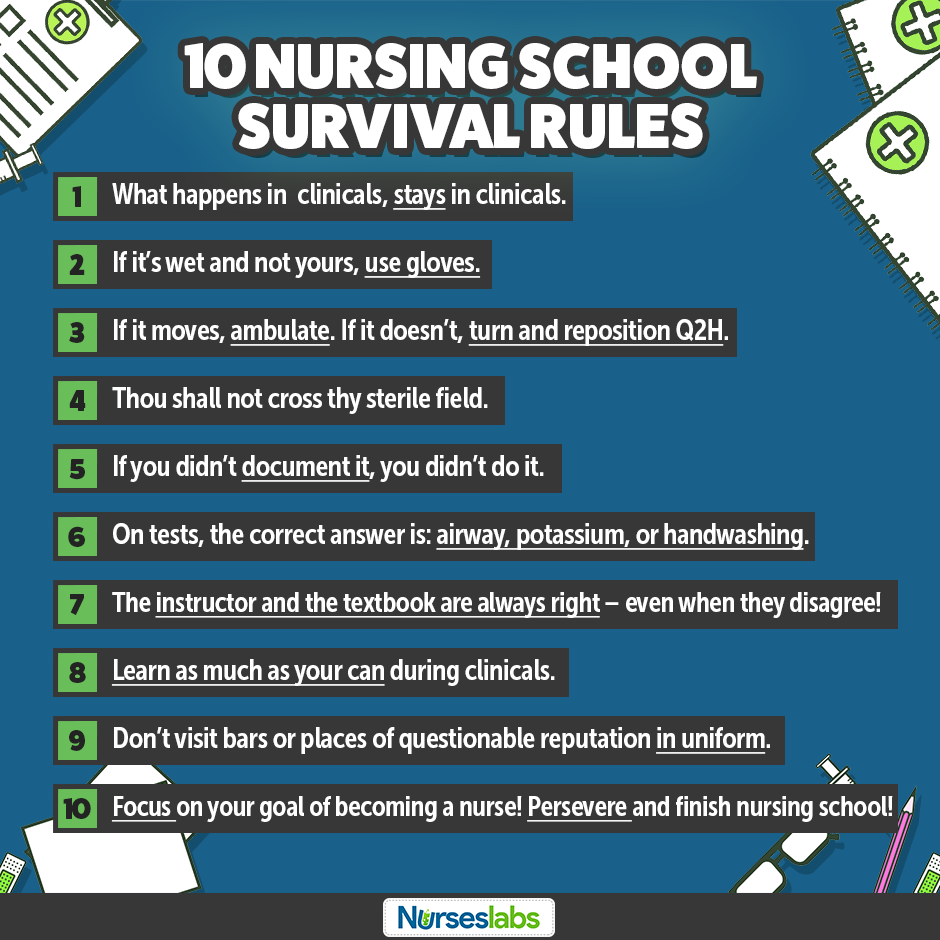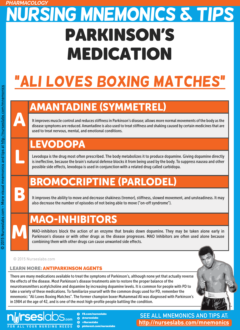You’re starting nursing school this year and embarking on one of the most important journeys of your life. Or maybe you are aiming to do better than in previous years of study. Whatever your level, these nursing school tips and strategies on how you can prepare for and survive nursing school will help you hit the ground running and stay on the top of your game throughout the year. Here are some tips you need to learn and habits you need to form if you want to survive nursing school:
1. Focus on your goal
Your ultimate goal in nursing school is to attain the title of registered nurse meaning that you will need to complete the demanding nursing course successfully and pass the NCLEX exam. Also, keep in mind that you are paying a lot of money to achieve this goal.
Whether you are studying at a college or a university, your primary focus for the next few years should be on your education. Your life should be planned around your studies rather than trying to fit your studies around other activities like sports, clubs, parties, and dates.
Your life should be planned around your studies rather than trying to fit your studies around other activities
Focusing in nursing school may sound obvious, but with your environment being far less controlled and structured than when you were at home and in high school, it is easy to get caught up in all the fun activities of student life.
Success requires dedication. At times you will have to spend weekends with your books or say no to that hot date or exciting concert. Explain your priorities to those who are close to you – your family, partner, and friends. Doing so will gain their respect, understanding, and support.
2. Manage your time well with proper planning
Everyone has the same number of hours every day, but some of the people seem to get so much more done than others. Be that student who manages their time well and not idles away on things that are not important. Managing your time well is critical while at university and learning this skill will be valuable for the rest of your life, and especially in your nursing career.
The first step in time management is detailed planning which helps you to map out your priorities and to avoid procrastination and wasting time on activities that don’t contribute to your goals. Think of how quickly an hour or two can run away while scrolling on social media or chatting on the phone with a friend!

For this nursing school tip, get a diary, use it to plan and create daily task lists. Enter all the fundamental commitments such as classes, clinical assignments, and deadlines for written assignments and tests. Then pen in specific times for reading to prepare for classes, reviewing your study material and studying for tests and exams, as well as for working on written assignments ahead of time.
Once you’ve provided for your study commitments in your planner, you can see clearly where and how much time you can schedule for leisure activities – time to spend with your family and friends or participate in sports and clubs. During the academic year, the course-load will ebb and flow and with proper planning and time-management you will avoid the stress of getting further and further behind as the term progresses.
Committing to a study routine will keep you focused and give you plenty of time to get everything done while still allowing for a work-life balance. Not only will this enhance your learning, but you will be able to approach your tests and exams with confidence.
3. Get the most out of your classes and clinical assignments
Don’t ever be tempted to skip your classes. This is where you get your instructors’ perspectives on what the key points are of the learning material.
Do the reading for classes before attending. It helps if you already have some knowledge of the topic which will the covered and you can prepare questions about material you don’t fully understand.

While in class, listen actively. Don’t try to take notes of every word – evaluate the information. Listen for main ideas and the details that are stressed. Pay particular attention when a teacher explains specific points – this usually covers information which the teacher knows from experience that students have difficulty with.
You may feel intimidated to ask a question in class. Just keep in mind that if you are confused, it is likely that other students are in the same position. So don’t be afraid – just put up your hand and ask.
The same applies to clinical rotations – the more you question, the more you learn. Also, try not only to make yourself available for tasks where you feel confident in your knowledge and skill – where you can, choose or ask for assignments that will challenge you and which will be a new learning experience.
4. Study effectively
At the beginning of each course analyze the course outline as well as the description of the goals and objectives – this will give you valuable insights into what and how to study.
While studying, always focus on the key points as well as on underlying principles, facts alone won’t help you in nursing. You need to be able to critically analyze and relate the facts to find solutions in every unique situation.

Read actively and thoughtfully to make sure that you understand what you read. Use class discussions as a guide to identify the most essential information. Forget what you were taught about never writing in books (unless they don’t belong to you). Skim through the material first to identify the most important points – then underline, highlight, make notes in the margins. You can also create nursing mnemonics to help you familiarize yourself with the nursing topic.
Effective learning requires repetition and variety keeps us from getting bored. Find different “inputs” for engaging with the material that matches your learning style. Make summaries, draw diagrams, use flash cards, read the material out loud, or join a study group. Practice with NCLEX questions from the start – these really test your insight and understanding.
Read as widely as you can in the time you have available. Use other resources to study the material besides the prescribed books. Even if it covers the same information, your thoughts are less likely to wander if you read the topic in different words and perspective. Extensive reading also gives you more knowledge on the subject – this could earn you bonus points in examinations but, more importantly, as you expand your familiarity with a topic, the more the key facts become like common knowledge to you.
Our concentration span is limited, and you will study more effectively if you take regular breaks. When you find your thoughts wandering get up, stretch and move around, get something to eat or drink, rest your eyes by focusing in the distance.
5. Build a support network
Make friends with fellow nursing students as soon as you can. For the next few years, they will be going through the same experiences you are.
They will be the only ones who really understand what you are going through – you will become each other’s study buddies, shoulder’s to cry on, and family away from home. There will be times that it feels that everything is just getting too much, there will be tears and times that you feel like quitting – your fellow nursing students will be the ones that are there to support you and help you to pick yourself up and push on.
You can also explain work to each other when one of you becomes stuck, work together on assignments, form study groups and quiz each other before exams.
Your fellow nursing students will also be the only ones to share those nursing jokes with (jokes that none of your other friends or family will appreciate!)
A further important part of the support network you should build is with your instructors. Their goal is to help you to achieve yours, and they will be more than willing to help you if they see that you are serious about your studies. So get to know them and don’t be afraid to approach them when you need help.
6. Stay healthy
You will be unable to keep up with the demanding course if you don’t pay attention to staying healthy. A healthy body and mind will help you to optimize your learning as well as keep your immune system going so that you don’t fall ill easily.
Eat regular and healthy meals, get some exercise, sleep enough and make time for stress-relieving leisure activities. It’s especially important to make sure that you get enough sleep before a test or an exam – if you attended classes and reviewed your work regularly your mind will quickly access the information it has stored if it is rested.
It will all be worth it!
“It’s going to change who you are and be one of the most challenging yet exhilarating times of your life. And at the end of it all, what we all wait for ….’I am a registered nurse’” wrote Karen Rouse in the American Journal of Nursing after asking readers about what advice they would give to a new nursing student.
“If I had to put your best advice to her in one sentence, it would be this: nursing school is probably one of the most difficult things you will ever do, but with good study habits and the support of your fellow nursing student friends, you will get through, and it will be oh so worth it!”

This is so on point!
I am so keen for the day that I can get my strips as I have set myself a goal to finish my Diploma of Nursing and then do my Bachelor and then specialise in the field of becoming a rural nurse for my native community and help bridge a small gap between my people and others so I found this to be very helpful thank you so much for posting this up I should be able to do a lot better if I have a study structure
Thank you so much ! This is litterrally what I needed to boost my energy and confidence in these times I have to take my HESI !
You’re very welcome!